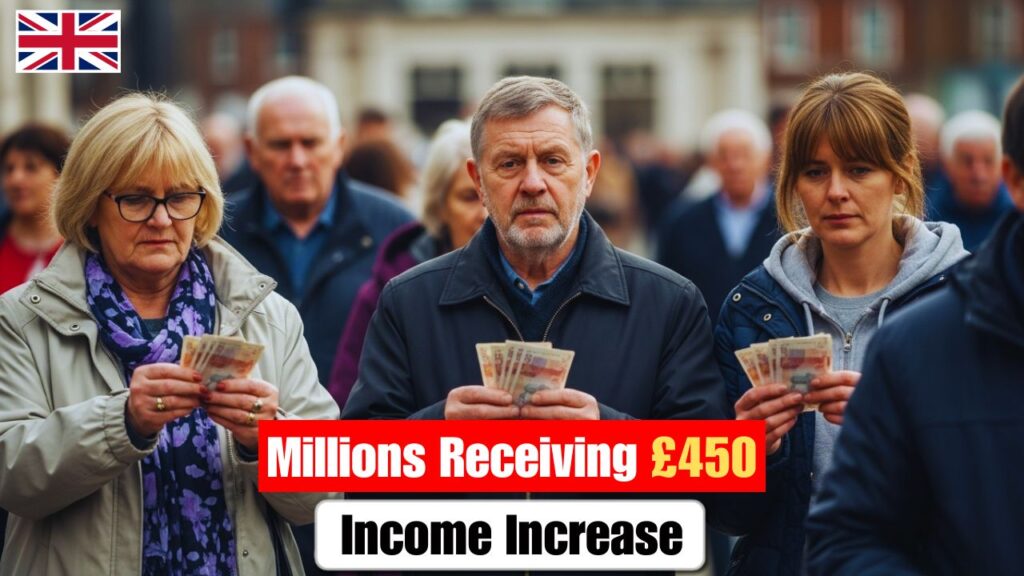The UK government has announced a significant income rise for millions of Universal Credit recipients, marking a major boost for households across the country. Starting this month, around 8 million claimants will see an additional £450 added to their benefits, providing essential financial relief amid rising living costs. This increase is part of the Department for Work and Pensions’ efforts to support low-income families and ensure citizens have more stability and security in their daily finances. Experts say this move will help millions manage household bills and unexpected expenses more comfortably.

Details of the DWP £450 Income Rise
The Department for Work and Pensions confirmed that the new payment will be automatically included in the upcoming Universal Credit cycle. Eligible households and individuals do not need to take additional action, as the increase is directly added to existing claims. This rise aims to offset the cost-of-living pressures faced by millions, particularly in areas with higher expenses. The DWP emphasized that this support package is designed to strengthen financial security and help claimants plan ahead for bills and essential spending.
Who Qualifies for the Universal Credit Boost
The £450 boost targets Universal Credit recipients who meet standard eligibility criteria, including both working and non-working claimants. Single adults, couples, and families with dependent children may benefit, depending on their current claim status. The DWP has clarified that claimants with recent changes in circumstances should check their accounts to ensure they receive the full payment. This move reflects the government’s focus on fair support and helping those who need it most, particularly during periods of financial uncertainty.
Impact of the £450 Boost on Households
Experts predict that the additional £450 will provide meaningful financial relief for households struggling with rising energy bills and everyday expenses. Families may use the funds for grocery costs, rent support, or emergency medical expenses. The boost is expected to stimulate local economies as recipients increase spending in essential goods and services. Overall, this payment underscores the government’s commitment to supporting vulnerable communities and reducing financial strain for millions across the UK.
Summary of the Universal Credit Payment Increase
In conclusion, the DWP’s £450 income rise represents a major step in helping low-income households manage day-to-day expenses. By targeting around 8 million Universal Credit users, the government is providing tangible financial support that addresses cost-of-living challenges. This measure will likely ease pressure on families, improve household budget stability, and ensure that claimants have additional resources for essential needs. Analysts view it as a vital tool to maintain social security safety nets during economically challenging times.
| Payment Type | Amount | Eligibility | Payment Date |
|---|---|---|---|
| Universal Credit Standard | £450 increase | All claimants | Next payment cycle |
| Couples with Children | £450 increase | Joint claimants | Next payment cycle |
| Single Parents | £450 increase | Dependent children | Next payment cycle |
| Non-Working Adults | £450 increase | Eligible claimants | Next payment cycle |
Frequently Asked Questions (FAQs)
1. What is the eligibility?
All Universal Credit claimants meeting standard criteria are eligible.
2. How much will the boost be?
The payment increase is £450 per claimant or household.
3. When will the payment arrive?
The boost will be included in the next Universal Credit cycle.
4. Do claimants need to apply?
No application is required; payments are automatic for eligible users.




